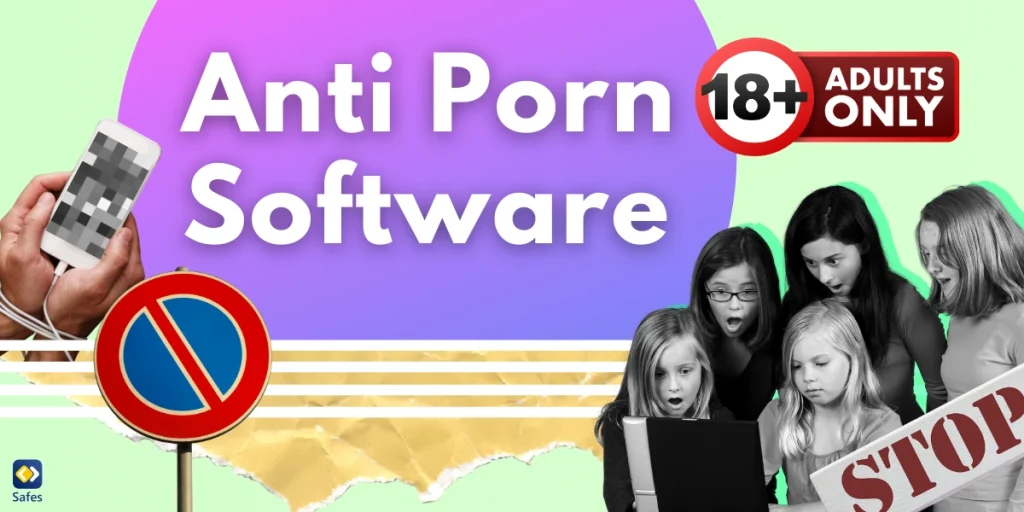Heads Up game has become quite popular among kids in recent years. Developed by Ellen DeGeneres, this game app involves holding a smartphone or tablet on your forehead while someone gives you clues to guess the word on the screen. While the game can be a lot of fun, many parents have concerns about its safety for their children. In this blog post, we’ll take a closer look at the Heads Up game and explore its safety for kids. We’ll discuss the potential risks and benefits of the game and provide parents with the information they need to decide if it’s appropriate for their children.
Download and Start Your Free Trial of the Safes Parental Control App
Overview of the Heads Up Game
The Heads Up game is a popular party game that can be played with friends and family. One player holds the device on their forehead while others give them clues to guess the word or phrase displayed on the screen. The game has various categories, including animals, famous people, movies, and accents. Players can choose from different decks and even create their own.
The game is suitable for players of all ages, with different decks targeting different age groups. Heads Up is rated E for Everyone by the Entertainment Software Rating Board (ESRB), indicating that it is safe for players of all ages.

Benefits of the Heads Up Game for Kids
Playing the Heads Up game can have cognitive benefits for children. The game can improve their vocabulary, word association, and memory recall. It can also help children develop critical thinking and problem-solving skills as they try to guess the word or phrase from the clues given by their teammates. Additionally, the game can promote social interaction and communication skills, as players need to work together to give and receive clues. Children can learn to listen actively, take turns, and express their ideas clearly.
The game can also be used as a learning tool in academic settings. Since parents often look for safe games for kids, Heads Up can be a great choice due to its educational value and family-friendly gameplay. Teachers can use it to teach vocabulary, grammar, and language skills. The game’s variety of categories and topics can help children learn about different subjects, such as history, science, and literature.
Safety Concerns with the Heads Up Game
While the Heads Up game is generally safe for players of all ages, there are potential risks associated with playing the game. Players may become frustrated or upset if they are unable to guess the word or phrase, and there is a risk of players feeling left out or excluded if they are not good at the game. Additionally, the game requires the use of a smartphone or tablet, which can expose children to online risks, such as cyberbullying and inappropriate content. Another concern is the potential for video game addiction. While Heads Up is a casual party game, excessive screen time and frequent gameplay can contribute to compulsive gaming habits, making it important for parents to set limits.
To mitigate these risks, the game has safety features and parental controls that parents can use to monitor their child’s game use. Parents can set up a passcode to prevent their children from making in-app purchases or accessing inappropriate content. They can also monitor their children’s use of the game by checking their device’s usage history or using parental control apps. It is crucial for parents to talk to their children about online safety and establish rules and boundaries for their use of the game.

Tips for Using the Heads Up Game Safely with Kids
When using the Heads Up game with kids, it is essential to establish best practices to ensure their safety and well-being. Parents should monitor their children’s use of the game and set limits and boundaries for its use. This can include limiting the amount of time spent playing the game, setting rules for playing with friends and strangers, and discussing online safety and responsible gaming habits. Parents should also encourage their children to take breaks and engage in other activities, such as outdoor play and reading.
To promote safe and responsible gaming habits, parents can use the game as a tool for teaching their children about online safety and digital citizenship. They can discuss the importance of protecting personal information, respecting others online, and reporting inappropriate content or behavior. Additionally, parents can model healthy gaming habits by playing the game with their children and setting a good example for responsible technology use.
How Can the Safes Parental Control App Protect Your Child While Playing Online?
The Safes parental control app can help parents protect their children while playing game apps on their phones, tablets, and computers by offering features such as screen time monitoring, app blocker, and web filter.
The screen time monitoring feature allows parents to moderate the amount of time children spend playing games, ensuring they do not spend too much time on their devices. The app blocker tool prevents children from accessing risky game apps and online game platforms, while the web filter tool blocks access to inappropriate websites and content. This can help parents protect their children from cyberbullying, inappropriate content, and online predators.
Additionally, the app offers location tracking and geofencing features, allowing parents to monitor their children’s whereabouts and set boundaries for their device use. Overall, the Safes parental control app provides a comprehensive set of tools for parents to protect their children while playing games on their devices.
You can use Safes on all Android and iOS devices. To explore these features and more, sign up for a free trial of Safes today and start safeguarding your child’s digital experience!
Conclusion
In conclusion, using the best practices when using the Heads Up game with kids can help promote safe and responsible gaming habits. Setting limits and boundaries for its use, monitoring screen time, and using parental control apps such as Safes can help ensure children are protected from online risks. Parents can use these tools to help teach their children about the digital world and online safety. By setting a good example and engaging in conversations about responsible technology use, parents can help their children develop healthy gaming habits.
Your Child’s Online Safety Starts Here
Every parent today needs a solution to manage screen time and keep their child safe online.
Without the right tools, digital risks and excessive screen time can impact children's well-being. Safes helps parents set healthy boundaries, monitor activity, and protect kids from online dangers—all with an easy-to-use app.
Take control of your child’s digital world. Learn more about Safes or download the app to start your free trial today!




